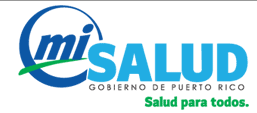Puerto Rico gov’t health plan adoption driving market

The market dominance of government-based healthcare coverage in Puerto Rico is driving managed care organizations to cover more generic drugs as fewer residents can afford more expensive plans, according to a recent report released by Mass.-based healthcare industry analyst firm Decision Resources Group.
Puerto Rico, which was not required to participate in the Affordable Care Act’s health insurance exchanges, now has 2.3 million people enrolled in Medicare and the government’s “Mi Salud” programs. The Commonwealth used its $925 million federal funding allocation for healthcare reform to expand “Mi Salud” to an additional 278,000 residents.
Given that 63 percent of Puerto Rico residents participate in “Mi Salud,” while only 35 percent of the residents are enrolled in commercial insurance plans, physicians argue that “the island’s healthcare system is becoming a social welfare state,” said Decision Resources Group Market Analyst Jacqueline Cavnar.
“Puerto Rico’s uninsured rate is 7 percent. Physicians contend with lower reimbursement rates and the number of patients they must see per day to sustain a viable practice — the same predicament many of their peers in the states face,” she said.
In her blog entry related to the report, Cavnar cited Puerto Rico’s Medical Licensing and Studies Board to confirm that the number of physicians in Puerto Rico has dropped by 13 percent in the last five years, from 11,397 to 9,950, looking for better conditions in other markets.
“Many of those physicians relocated to the mainland in search of higher salaries and better reimbursement rates. Family and general practitioners in Puerto Rico earn about $72,000 a year, while in the United States they earn about $180,000, according to 2012 statistics from the U.S. Bureau of Labor,” she said.
Another concern among physicians and service providers is the fact that Triple-S will be the sole third party administrator for the “Mi Salud” program, eliminating Humana from Puerto Rico’s Medicaid market, the report stated.
“Industry insiders, physicians and patients worry about the effective delivery of — and access to — care, given that Triple-S may control 60 percent of Puerto Rico’s insurance market when commercial, Medicare and Medicaid business segments are combined,” said Cavnar.
As a result, “many insurance carriers tweaked their 2014 Medicare Advantage plans to ensure that all generic drugs will be covered in the gap for next year,” Cavnar concluded.













